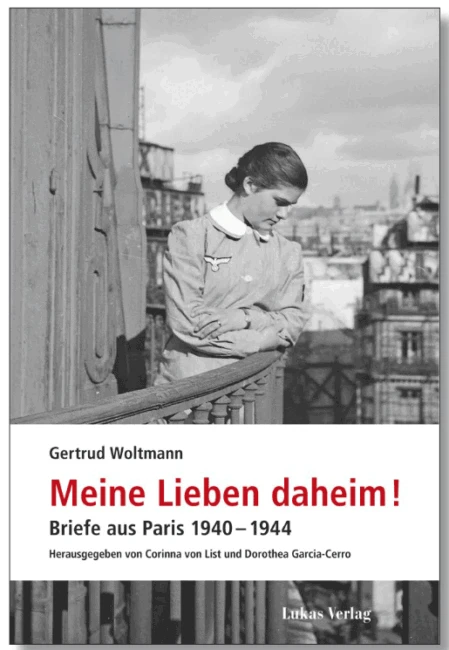Books
Latest book

My loved ones at home
Letters from Gertrud Woltmann, Paris 1940-1944
Gertrud Woltmann was the daughter of a pastor from Twistringen, in northern Germany. In 1940, when she had just turned 20, she was transferred to Paris to work as an army auxiliary and was stationed there until 1944. She wrote regularly to her parents and began all her letters with My loved ones at home.In a lively and often humorous style she wrote extensively about her everyday life in Paris, describes performances she had seen at the theatre and tells her parents about some of work she did for the German army.
She remained a devout Christian and wrote much about her engagement with the German Protestant community and her involvement with the choir. It becomes clear that she did not support the war and her letters show how her unwavering faith helped her cope with the cruelty imposed by the Nazi regime.
This collection of her original and unedited letters, together with some of her personal photographs and an interview she gave in 2017, offer a detailed insight into her private life and give an intimate perspective on the life of a young woman, forced to live far from home, during an extraordinary time.
Women in the Resistance 1940-1944
This thesis focuses on the role women played in the French Resistance and illustrates the level of commitment they had to overthrowing the Nazi occupation.
The women generally did not take up arms, but they risked their lives in many other ways and their activities had a significant contribution to the allied victory of 1945.
They were secretaries, teachers, social workers, journalists and housewives and they all became Resistance fighters. These normal women, from normal backgrounds, became radio operators, liaison officers, distributors of underground, clandestine papers and organisers of escape lines.
Corinna von List offers a meticulous investigation, which is supported by personal testimonies and previously unpublished archive documentation. She demonstrates that the beginnings of the French Resistance were not from the military, but in the civil arena. The Resistance developed from the dedication and commitment of the French population, notably the women, who resisted the Nazi occupation and were determined to liberate France.








